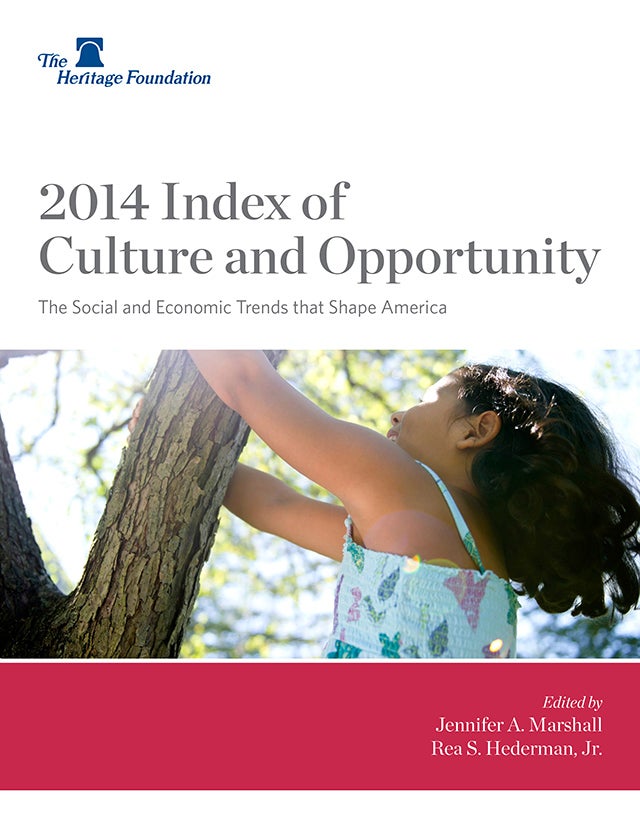Every one of us has an opportunity storyline.
Maybe a fourth-grade teacher nurtured a knack for math. Maybe a friend of the family offered a first summer job. Maybe a booming economy opened up a great career at start-up.
Or maybe our lives went differently. Perhaps an assigned public school didn’t foster a culture of success. Maybe dad wasn’t there to open doors. Maybe no one was hiring after college.
Cultural and economic factors are constantly shaping the opportunities open to Americans. Tracking those factors—and focusing policy and civil society attention on them—is the mission of a new publication from The Heritage Foundation’s Institute for Family, Community and Opportunity.
The 2014 Index of Culture and Opportunity tracks key social and economic indicators of opportunity in America. Expert commentary explores the trends that shape our capacity as a society to enjoy today’s blessings of liberty and to pass them on to the next generation.
Many of the indicators in the 2014 Index are not headed in the right direction. For instance, the marriage rate has declined and unwed childbearing continues to rise. Self-sufficiency has not improved—even though it was the original goal of the War on Poverty launched a half century ago—and food stamp participation has significantly increased in recent years. The student loan burden for college graduates continues to grow.
We need sustained attention, among policymakers and in neighborhoods across the country, to get back on track on these issues and improve opportunity for all Americans.
The good news is we can do better. The abortion rate and violent crime rate have decreased, showing the importance of focused effort in policy and civil society. Divorce is down. More students are participating in K-12 school choice programs.
The Index reports on these and other indicators—31 in all. They’re drawn from widely recognized, regularly updated national data. Each indicator’s change over the last 10-year period from available data lets readers see whether the indicator is, overall, heading on the right track or wrong track.
Experts from think tanks, universities, and media put these trends in context. Contributions from voices like Kathryn Lopez of National Review Institute, Larry Mead of New York University, and Heritage’s Steve Moore inform the conversation.
Social and economic factors contribute to opportunity, and the Index of Culture and Opportunity is designed to focus more policy and civil society attention on key areas that matter for Americans’ freedom to thrive.
>>> Explore and share the online version of the 2014 Index of Culture and Opportunity
